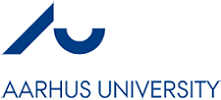Anthropology of Education and Globalisation

Education, learning and knowledge continue to grow in importance. They are widely considered to be prime drivers of global mobility and of the processes of equal opportunity, economic development and citizenship – in the North as well as the South. The new MA in Anthropology of Education and Globalisation aims to provide students with the competences necessary to work with the important topics of education, learning and knowledge in an increasingly globalised world.
Uniquely interdisciplinary
The programme is designed for students seeking an advanced training in anthropological approaches to educational practice and process in settings as varied as educational institutions, workplaces, and civil society. The teaching faculty – who are all active researchers – promote fruitful dialogue between the anthropological and educational traditions of enquiry, resulting in new arenas of study. Using ethnographic research methods and cross-cultural comparisons, the programme analyses specific (local) practices of education and knowledge in relation to broader (global) social and cultural contexts.
The programme provides a unique platform for exploring an array of traditional and less usual educational themes and sites across the globe: childhood socialisation and education; educational migration, multiculturalism and new forms of citizenship; global educational policy processes; the production and politics of knowledge; workplace learning, leadership and governance; welfare pedagogy; religion and education.
Read, print and be inspired
Download and print a short presentation of the MSc programme in Anthropology of Education and Globalisation 2014.
Į magistro studijų programas gali stoti visi, baigę universitetą arba besimokantys paskutiniame kurse. Studijos kurias baigei ar tebesimokai turi būti panašios krypties kaip ir tos, į kurias nori stoti, kadangi priėmimas yra paremtas ECTS kreditų suderinamumu.
ECTS kreditų išrašas - jei dar nesi baigęs aukštosios mokyklos, būtina prisegti ECTS kreditų išrašą, kuriame būtų matyti, kokius dalykus Tu mokeisi bei kokius pažymius ir kiek kreditų už juos gavai. Kai siunti anketą paskutiniame kurse, diplomą reikia prisegti vėliau, kai tik jį gausi.
Bakalauro diplomas – jei jau esi baigęs aukštąją mokyklą, išrašo nereikia, užtenka prie anketos prisegti savo Bakalauro diplomą.
Anglų kalbos žinias gali patvirtinti vienu iš šių būdų:
- IELTS – 6.5
- TOEFL – 83 . Aarhus universiteto TOEFL kodas yra 8935.
Applicants with the following degrees have access to the MA programme in Anthropology of Education and Globalisation:
- Bachelor’s degree in anthropology, ethnography, ethnology, sociology, sociology and cultural studies, education or educational science.
- Bachelor’s degree within the humanities or social sciences with a minimum of 45 ECTS elective courses in educational studies or anthropology/ethnography.
Along with the application the applicant must upload:
- Course descriptions in English briefly describing the contents of the applicant's specific BA courses or other information that will contribute to describing the contents of the applicant's Bachelor's degree programme (may be translated by the applicant, but certified by the applicant's university).
- Official descriptions of relevant courses to be completed after the application deadline.
- An official description of the marking scale used at the applicant's home university.
Education and life-long learning are of growing global importance. Educating students to embrace a global perspective and an in-depth understanding of how education, learning and knowledge are negotiated and managed in everyday life in differing settings across national and cultural borders, the programme is aimed at an internationally oriented labour market.
Possible job functions include educational and developmental management, research, and consultancy tasks; possible areas of work include children and youth, multiculturalism, management and organisational culture, globalisation, policy processes; and specific forms of organisation include public institutions, private firms, and not for-profit NGOs.
Students’ understanding of practice-related research methods and ethics will qualify them to participate in cross-disciplinary and cross-cultural research, and to work with various educational tasks both independently and in cooperation with others.

